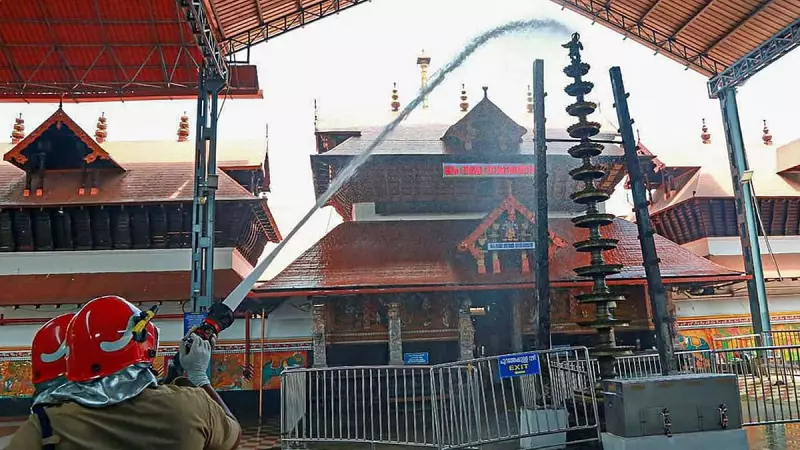
In a landmark decision that celebrates India's rich cultural heritage, the Supreme Court has upheld the traditional conduct of the sacred Udayasthamana Pooja at Kerala's revered Guruvayur Temple. This verdict ensures that the centuries-old ritual will continue exactly as it has been performed for generations, without any modifications or alterations.
Preserving Ancient Traditions
The Supreme Court bench, comprising Justice PS Narasimha and Justice Aravind Kumar, delivered a decisive judgment that protects the sanctity of this important Hindu ceremony. The Udayasthamana Pooja, a comprehensive 12-hour worship ritual, represents one of the most significant religious observances at the famous Guruvayur Temple, attracting devotees from across India and beyond.
Historical Significance Protected
This ruling comes as a relief to millions of devotees who consider the Guruvayur Temple among the most sacred pilgrimage sites in South India. The temple, dedicated to Lord Krishna, has maintained its religious practices according to ancient texts and traditions for centuries. The Supreme Court's decision recognizes the importance of preserving these cultural and religious practices in their authentic form.
The court carefully considered the temple's historical practices and the sentiments of the worshipping community before reaching its conclusion. This judgment reinforces the principle that ancient religious traditions should be protected from unnecessary interference, while balancing the needs of contemporary society.
What This Means for Devotees
For the countless pilgrims who visit Guruvayur Temple seeking spiritual solace, this verdict means they can continue to experience the Udayasthamana Pooja exactly as their ancestors did. The ritual's traditional format, timing, and procedures remain intact, preserving the spiritual atmosphere that has made this temple a beacon of Hindu worship.
The judgment also sets an important precedent for the protection of religious ceremonies across India, emphasizing the need to respect and preserve cultural heritage while ensuring they align with constitutional values.





